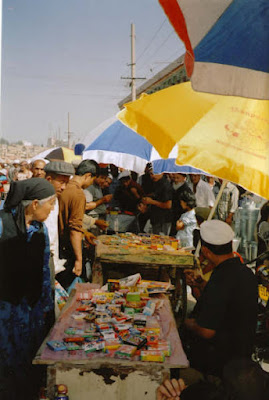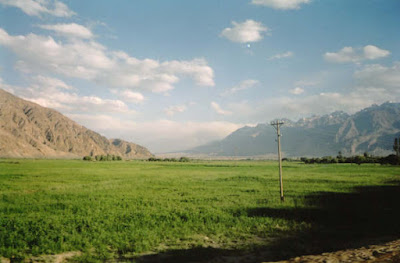Seeing the Unseen: My Journey with Dragonflies
By Armando Ortiz
Life presents us with patterns of interconnectedness, whether we choose to see them or not. Some feel random, but in hindsight, they form a web of meaning. As humans, we weave significance into the things around us, creating symbolism from what appears to be chance. It can be playful or overwhelming. Ultimately, we decide how to process it.
In the early 2000’s I spent time studying in South Korea and China. After completing my graduate studies, and no longer able to continue studying Mandarin, I moved on to other ventures. I spent some time teaching English in South Korea before using my savings to start a business back in Los Angeles. My idea was simple: people in the U.S. would buy East Asian art books.
From 2007 to 2011, I traveled frequently between the U.S. and China, also visiting South Korea and Japan in search of books. At the peak of my business, I traveled to China at least once or twice a year. I drove to many parts of the Western and Midwest regions of the U.S., met many artists, and saw many different places. I was fortunate.
Most of my books came from Tianjin. I chose the city simply by browsing a Beijing bookstore and gravitating toward a particular book. The publisher that resonated with me was based there– about 70 miles from the capital, roughly the same distance as a drive from Los Angeles to Ventura. I remember my first trip: all I had was an address and a printed map. The beginning of my business was more of an adventure.
This reflection is less about my business and more about the randomness of interconnected moments - the meanings we attach to things, in this case, dragonflies.
While in Tianjin, on my way to the bank with a publishing company secretary, I spotted a dead dragonfly on the sidewalk. I picked it up and examined it. Its body shimmered metallic green and blue, catching the sunlight. Its transparent wings had disintegrated, leaving only delicate filaments– traces of its former flight.
A few days later, in Beijing, I checked into my room and rested. Suddenly, a dragonfly landed on the outer edge of the air conditioner. It lingered there and died. The heat that day was intense. I opened the window and saw its iridescent body up close. I left it where it was but felt oddly lucky to have noticed it.
Two weeks after returning to Los Angeles, I encountered another dead dragonfly on Wilshire Boulevard, near a palm tree. As before, I picked it up, examined it, then returned it to where I’d found it. This one wasn’t metallic like the ones in China– it had muted shades of purple and gray, with hints of sage. There was no hesitation in picking it up; it felt natural, as if I was meant to find them.
Curious, I looked up dragonflies but didn’t research deeply. I learned they mostly live near water and that thousands of species exist.
Months later, after summer had passed, I found myself in Tucson, Arizona. Taking a break from selling books, I visited a weekend arts festival. There, I came across an artist named Magdalena Nowacka. Her paper cutout artwork, inspired by Native American religions, was intricate and thoughtful. As I browsed through her collection, I found an affordable piece– a card with a dragonfly at its center. It immediately brought back memories of my recent encounters.
The design was inspired by Japanese motifs. That evening, I researched Japanese symbolism and learned that many believe Japan, when viewed on a map, resembles a dragonfly. The insect is also called the victory insect because of its agility, vibrant colors, and appetite for mosquitoes. I jotted these findings down in my notebook, along with my growing list of connections.
Later, my niece asked if I had ever written a poem about dragonflies. She told me that she had a toy dragonfly and wanted to read something I had written on the subject. Her question caught me off guard– I had never considered writing about them before.
Then, as if the universe had nudged me again, a friend invited me to a birthday party at a venue called The Dragonfly. Inside, a massive dragonfly sculpture loomed over the stage. I took it as a sign. I needed to gather these experiences and make something of them.
In time, I learned about damselflies, their smaller and more delicate relatives. I also discovered that my home state has 77 recorded species– 47 dragonflies and 29 damselflies. The most common? The Flame Skimmer.
The connections continue. On a weekend hike, I spotted dragon flies hovering at the top of a ridge, far from any water. Had the wind carried them from Burbank to this pass, where mosquitos might have gathered? I couldn’t say. But I had already begun the process of stringing these moments together, and I was enjoying it.
That’s the beauty of story telling– how one thing can lead to another, creating patterns where none seemed to exist. The key is to draw the reader into your world; your way of seeing.
The more I noticed dragonflies, the more they seemed to notice me. Maybe it’s time I finally write that poem.











